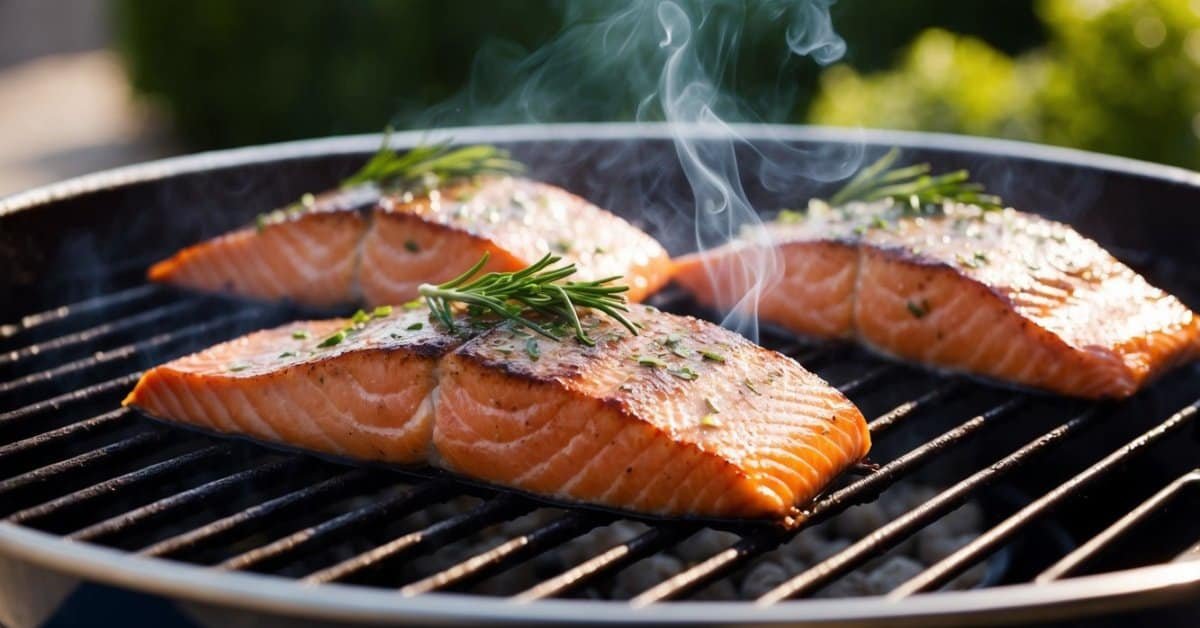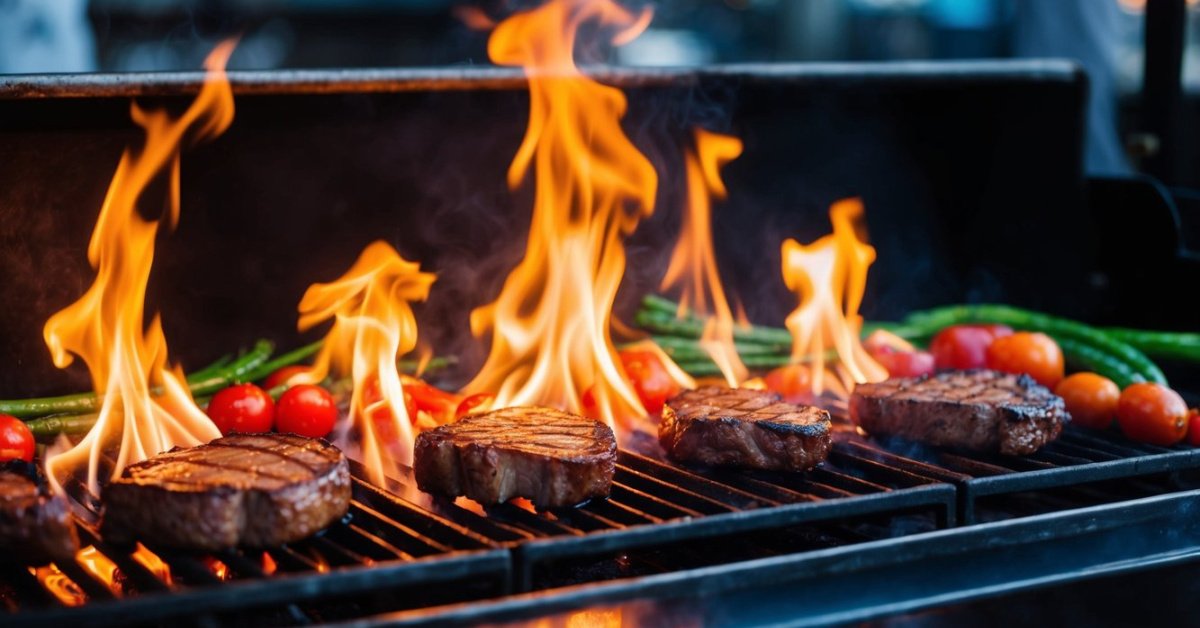There’s nothing better than the smell of a perfectly grilled meal, but keeping your grill grates clean is key to achieving that delicious flavor. I’ve learned that regular maintenance not only makes cooking easier but also extends the life of your grill.

Importance of Clean Grill Grates
Maintaining clean grill grates enhances the flavor of my meals. Residue from previous cooking sessions can impart unwanted tastes to new dishes. For example, leftover fats and oils cause flare-ups, affecting food quality.
Regular cleaning simplifies the cooking process. When grates are free of debris, managing heat distribution becomes easier and prevents sticking. This efficiency reduces preparation time and ensures consistent cooking results.
Clean grill grates prolong the lifespan of my grill. Removing buildup prevents rust and corrosion, which can compromise the grill’s structural integrity. By keeping grates in good condition, I extend my grill’s usability and performance.
| Benefit | Description |
|---|---|
| Enhanced Flavor | Eliminates residue that affects the taste of food |
| Simplified Cooking | Eases heat management and reduces sticking |
| Increased Longevity | Prevents rust and corrosion, extending grill life |
Preparing to Clean
I ensure everything is ready before I start cleaning the grill grates for an efficient process.
Gathering Supplies
- Grill Brush: Stainless steel bristles for effective scrubbing
- Cleaning Solution: Mix dish soap with warm water in a bucket or spray bottle
- Protective Gear: Rubber gloves to safeguard my hands
- Cloths: Paper towels or clean cloths for wiping
- Additional Cleaners: Vinegar or baking soda for stubborn residue
Safety Precautions
- Cool Down: Confirm the grill is completely cooled to prevent burns
- Disconnect Gas: Turn off and disconnect the gas supply if using a gas grill
- Ventilation: Clean in a well-ventilated area to avoid inhaling fumes
- Protective Clothing: Wear gloves to protect hands from sharp grates and cleaning agents
- Safety Zone: Keep children and pets away from the cleaning area
Cleaning Techniques
I use reliable methods to keep my grill grates clean and efficient. These techniques remove residue and maintain optimal grilling performance.
Scrubbing the Grates
I scrub the grates with a stainless steel brush, applying consistent pressure to eliminate food particles and grease. For tougher stains, I create a paste using baking soda and water, spread it on the grates, and scrub until clean. Regular scrubbing removes buildup and ensures a smooth cooking surface.
Soaking and Degreasing
I soak the grates in warm, soapy water for 30 minutes, allowing the solution to break down grease and grime. After soaking, I rinse them thoroughly with clean water to remove any remaining residue. This soaking process simplifies the removal of stubborn debris and keeps the grates in excellent condition.
Post-Cleaning Maintenance
After cleaning the grill grates, I ensure they dry completely to prevent rust. I wipe them down with a clean cloth and let them air dry for at least 30 minutes. If moisture remains, it can lead to corrosion over time.
Applying a light coating of high-heat cooking oil helps protect the grates. I use a paper towel dipped in vegetable oil, then rub it evenly across the surfaces. This step creates a non-stick layer, making future cleanings easier and enhancing the grilling experience.
Regular inspections keep the grill in top condition. I check for any signs of wear or damage, such as cracks or warping in the grates. Identifying issues early allows me to address them before they affect the grill’s performance.
Storing the grill properly extends its lifespan. I cover the grill with a weather-resistant cover when not in use and store it in a dry area. This practice shields the grill from the elements, reducing the risk of rust and deterioration.
Lastly, scheduling routine cleanings maintains optimal performance. I clean the grates after each use and perform a deep clean every few months. Consistent maintenance ensures the grill operates efficiently and continues to deliver delicious meals.
| Maintenance Task | Frequency |
|---|---|
| Drying Grates | After each cleaning |
| Oil Coating | After each cleaning |
| Inspecting for Damage | Monthly |
| Storing with Cover | After each use |
| Routine Cleanings | Weekly/Daily use |
Preventative Tips
- Clean grates after each use to remove food particles and grease, preventing buildup that can cause flare-ups.
- Season grates regularly with high-heat cooking oil, creating a non-stick surface that reduces residue accumulation.
- Preheat the grill properly to burn off any remaining debris, making subsequent cleanings easier.
- Cover the grill when not in use with a weather-resistant cover, shielding grates from moisture and outdoor elements.
- Avoid using acidic marinades that can corrode grates, instead opting for oil-based marinades that are less damaging.
- Inspect grates monthly for signs of wear or damage, addressing issues promptly to maintain optimal performance.
- Utilize appropriate cooking techniques, such as indirect grilling, to minimize residue buildup on the grates.
Conclusion
Keeping my grill grates clean has really transformed my grilling experience. It’s amazing how much easier cooking becomes when everything runs smoothly. Plus the flavors just pop when there’s no leftover residue marring the taste.
I love knowing that with a little regular maintenance my grill stays in great shape for years to come. It’s satisfying to see and feel the difference clean grates make every time I fire up the grill. If you give these tips a try you’ll enjoy better meals and a grill that’s always ready for the next barbecue.













